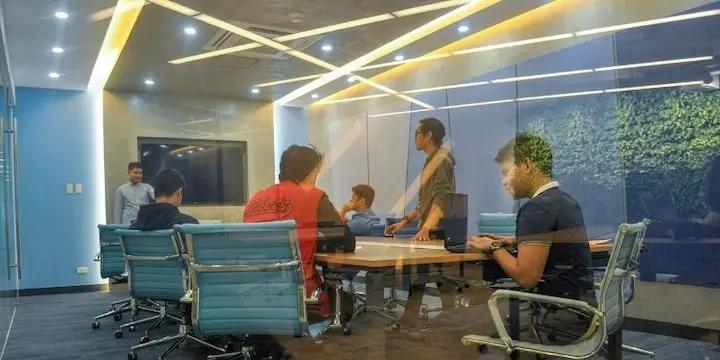How Coworking Spaces And Flexible Offices Are Improving Output
By Kyle Edriel Tomagan | 08/29/2019

While traditional offices are still the workspace of choice for many companies, high-quality coworking spaces, and the flexible workspace industry itself, are changing our approach to work. In fact, numerous multinationals are shifting from normal offices to flexible workspaces.
Flexible workspaces have been proven to increase productivity at a reasonable rate, making it an attractive office option for many corporates and startups alike, but what exactly is it that makes these office spaces so effective at increasing employee output?
1. Increased Interaction

The shared space setup of coworking spaces and flexible offices have drastically improved workers’ satisfaction. A survey by the Harvard Business Review found that 89 percent of isolated employees report being happier since joining a coworking space, directly improving their contributions to the workplace.
This higher overall productivity does not apply only to remote employees, as workers in traditional offices state that they thrive in coworking spaces, with an average nearing six on a seven-point scale.
2. Quick Turnover And Cheaper Rates

Flexi spaces also boost efficiency through quick turnaround times and cheaper rates.
Flexible workspaces are plug-and-play office solutions, giving you the flexibility to move in quickly and with little to no hassle. This is especially important if you have ongoing projects since the seamless transition helps you stay on top of your deliverables.
Compared to common offices, you can move into a coworking space in just one day after signing the contract, whereas relocating to a conventional office often takes a week or even a month, depending on the size of the company.
Coworking space is also much more cost-efficient than a leased traditional office. Coworking rates are flexible, as you can pay on a daily or monthly basis. Meanwhile, there are fixed rates on conventional office rentals that must be paid monthly.
While some companies require built-to-suit office solutions for their requirements, businesses that require an instant office are simply better off with a coworking space within a flexible workspace.
3. Better Networking Opportunities

More networking opportunities await those working in a flexible workspace. In fact, 82 percent of respondents in the aforementioned survey reported that coworking has expanded their business networks.
Even those working out of a private office inside the flexi space enjoy better networking. Many multinationals stationed in serviced offices often connect with startups and other corporations, extending invites to events and functions that can also be hosted within the flexible workspace.
Flexible workspace is the future of the office space industry, providing everything that today’s employees require to reach maximum productivity. Of course, leased offices are certainly still good working environments, but if you require flexibility, cheaper rates, and better output from your employees, working in a flexible office space is a practical move.
